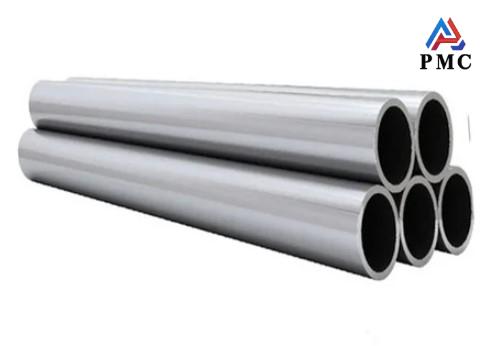
Seamless Pipe for Geological Use
Geological seamless steel pipes are seamless steel pipes designed and manufactured for complex geological environments such as geological exploration, drilling and underground engineering. Because these pipes operate in extreme environments—withstanding the intense torque, high pressure, wear, and impact of drilling, as well as the corrosive media like hydrogen sulfide and carbon dioxide, and high temperatures found underground—they demand stringent standards in material selection, production processes, and quality control. The following article systematically examines the types, applications, and relevant standards of these pipes.
Unique features
Compared with ordinary seamless steel pipes, those used for geological purposes have distinct characteristics. In terms of material, they are mostly made of high-quality carbon steel or alloy steel, which gives them greater strength and toughness.
In terms of performance, its advantages are very prominent. Ordinary seamless steel pipes may meet the needs of general fluid transportation or structural support, but geological seamless steel pipes have to face complex geological conditions. This requires them to have high strength to withstand the tremendous pressure of underground rocks; high toughness to prevent fracture due to uneven force during drilling; and good corrosion resistance, because various chemical substances underground can corrode steel pipes.
In terms of application, ordinary seamless steel pipes are widely used in construction, machinery manufacturing, and other industries. In contrast, seamless steel pipes for geological purposes are specifically designed for geological exploration. Serving as the “vanguard” of underground resource exploration, they play an irreplaceable role with their unique specialization and precision.

Main types and applications
1. Steel pipes for geological drilling
Application: It is mainly used in solid mineral and hydrogeological exploration, coalbed methane mining, trenchless horizontal directional drilling, and related fields. It directly participates in the drilling process by connecting the drill bit, transmitting torque and axial pressure, and circulating flushing fluid.
Features: It is characterized by high strength, toughness, good wear resistance, fatigue resistance, and excellent connection performance, often incorporating internal and external thickened joints or flat joint designs.
Common materials: DZ40, DZ50, DZ60, DZ70, DZ80 and other grades, these are alloy steels designed specifically for geological drilling. The higher the number, the higher the strength grade.
2. Steel pipes for oil drilling
Although often associated with petroleum, these pipes also fall under the broader category of geology, as oil and gas drilling is an important part of geological engineering.
Drill Pipe: Designed to connect with the drill bit, the drill pipe transmits torque and axial force while circulating drilling fluid. It must possess high strength, toughness, and fatigue resistance. Common grades include E75, X95, G105, and S135.
Tubing: Tubing is primarily used to extract oil and natural gas from wells. It requires excellent tensile strength and corrosion resistance to withstand harsh downhole conditions. Common grades include J55, N80, L80, and P110.
Casing Pipe: Casing pipe stabilizes the wellbore, isolates different formations, and prevents collapse or fluid migration between layers. It must offer high compressive and tensile strength. Common grades include J55, K55, N80, L80, P110, and Q125.
Features: Materials used in these pipes are subject to strict performance requirements, including high strength, toughness, and yield strength. They must also demonstrate excellent collapse resistance and strong resistance to hydrogen sulfide stress corrosion cracking (SSC) and carbon dioxide (CO₂) corrosion.
3. Seamless steel pipe for mining
Applications: Used in underground coal mine operations for gas extraction, grouting, drainage, ventilation, and related purposes.
Features: Designed for high pressure-bearing capacity and corrosion resistance. Some pipes may also require enhanced wear resistance.
Common Materials: Typically made from carbon steels such as Q235 and Q345, with anti-corrosion treatments applied as needed.
4. seamless pipe for engineering piles
Applications: Serves as foundation piles in foundation engineering, supporting superstructures.
Features: Requires excellent strength, toughness, weldability, and resistance to underground corrosion.
Common Materials: Structural steels such as Q235 and Q345.
Special requirements for seamless steel pipes for geological purposes
High Strength and Toughness: Capable of withstanding shocks, vibrations, and torque encountered during complex drilling operations.
Abrasion Resistance: Effectively resists wear caused by friction with rock or soil during drilling.
Fatigue Resistance: Maintains durability under long-term cyclic or reciprocating stress.
Corrosion resistance: To cope with corrosive media such as groundwater, hydrogen sulfide, and carbon dioxide, higher levels of resistance to sulfide stress corrosion cracking (SSC) and carbon dioxide corrosion (CO2 corrosion) are required for "sweet gas wells" and "sour gas wells" with high hydrogen sulfide content.
Dimensional accuracy and straightness ensure smooth assembly and running of drill tools into the wellbore.
Joint reliability: Drill pipe, tubing, and casing pipe all require threaded joints, requiring high strength and excellent sealing.
Read more: Seamless Steel Pipe for Tunnel
- 【Prev】 : Square Tube Thickness
- 【Next】 : API Drill Pipe Specification


